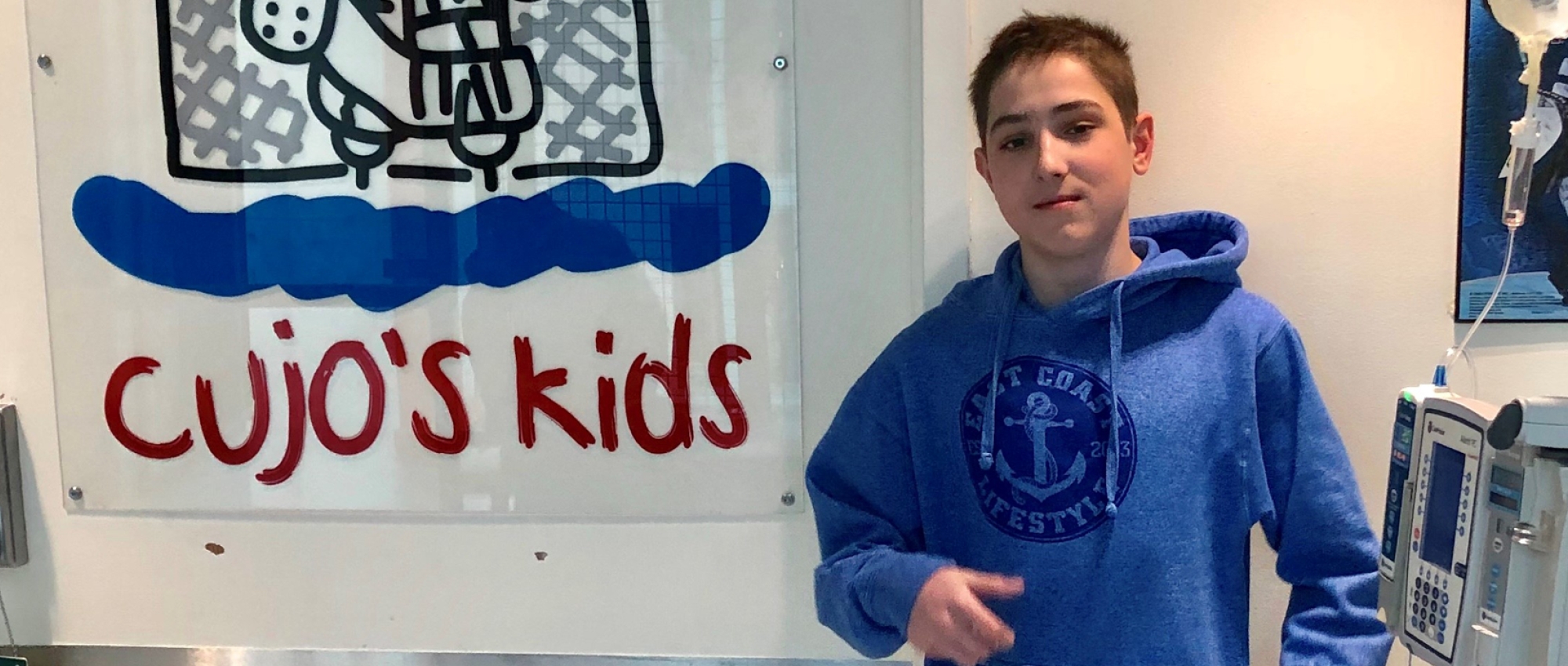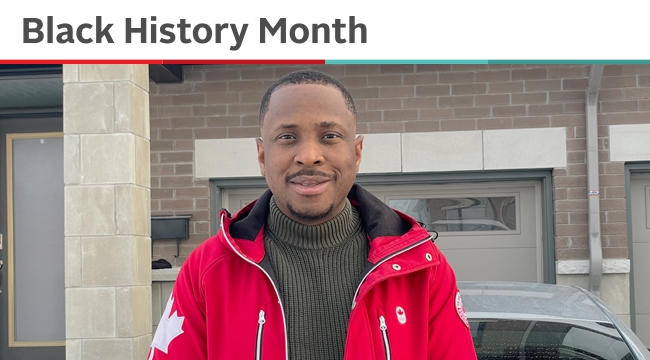The need goes on #6: Fighting childhood leukemia
Ty Armatage is highly vulnerable to COVID-19, and he also depends on blood products
Before COVID-19 came along, things had been looking up for Ty Armatage, a 16-year-old from a small community near Barrie, Ont.
Shortly before his 15th birthday, Ty learned that he had acute lymphoblastic leukemia. He went through intensive chemotherapy, and the treatment was successful. This school year, he was back full-time in Grade 11 and playing the sports he loves, including triple A hockey.
Now COVID-19 has brought Ty’s seemingly normal life to a screeching halt, as it has for teenagers all over the world. But for Ty, there’s a sense of déjà vu.
“During frontline [therapy] it was like a full year was stolen from him,” says Tracy Armatage, Ty’s mother. “He’d started getting some normalcy back in his life, and now it’s been snatched away from him because of COVID-19.”
Ty and the rest of his family actually began secluding themselves at home sooner than most other Canadians. That’s because the maintenance therapy that’s keeping Ty’s cancer in remission leaves him highly vulnerable to infection.
During this period of maintenance therapy, Ty has also needed blood products, including a transfusion in January.
“There is a huge chance of him needing blood in the next few weeks,” Tracy says. “I’m terrified that he’s going to need it and there isn’t going to be any.”

Donors are needed throughout COVID-19
Canadian Blood Services recently witnessed a high number of appointment cancellations related to fears of COVID-19.
The prime minister and public health officials have since called on Canadians to keep donating blood, and the situation has stabilized. But blood products have a limited shelf life — only seven days in the case of platelets — which means the giving must continue in the weeks and months ahead to meet the needs of patients across Canada.
That’s why it’s essential for healthy eligible donors to keep booking and honouring their appointments during the COVID-19 pandemic. In provinces that have declared a state of emergency, the bans on social and recreational gatherings don’t apply to blood donor centres.
Donor centres have robust measures in place to protect donors, staff and volunteers. Detailed information about those measures and our overall response to the pandemic is updated daily on our COVID-19 page.
To enable physical distancing, we can only welcome people who’ve made an appointments ahead of time. Appointments can be booked online at blood.ca, through the GiveBlood app, or by calling 1 888 2 DONATE (1-888-236-6283).

The need for blood could hit anyone, anytime
Ty received his first blood products just days after his cancer diagnosis, Tracy says, and he’s needed them even more frequently since starting his maintenance therapy. According to Ty, the blood products have been important to his quality of life, as well his health.
“I’d be tired,” Ty says., “but once I got [the transfusion], it was like putting gas into an engine. I just felt more awake and alive.”
Ever since Ty’s diagnosis, his family has actively promoted blood donation in their own community and beyond. When friends and neighbours asked how they could help, Tracy says she encouraged them to donate blood. In fact, Ty’s older brother, Walker, who’s now 18, made his first donation at age 17, the first year he was eligible.
Tracy isn’t surprised that with many Canadians fearful of leaving their homes, some have been thinking twice about visiting blood donor centres. But she urges healthy people to continue giving blood, not just for the sake of her own son, but also for the sake of the donors’ loved ones, who could just as easily find themselves in need of donated blood.
“Never in a million years did we think Ty would go down this road,” Tracy says. “You never know when you’re going to need blood — until the day that you need it.”



